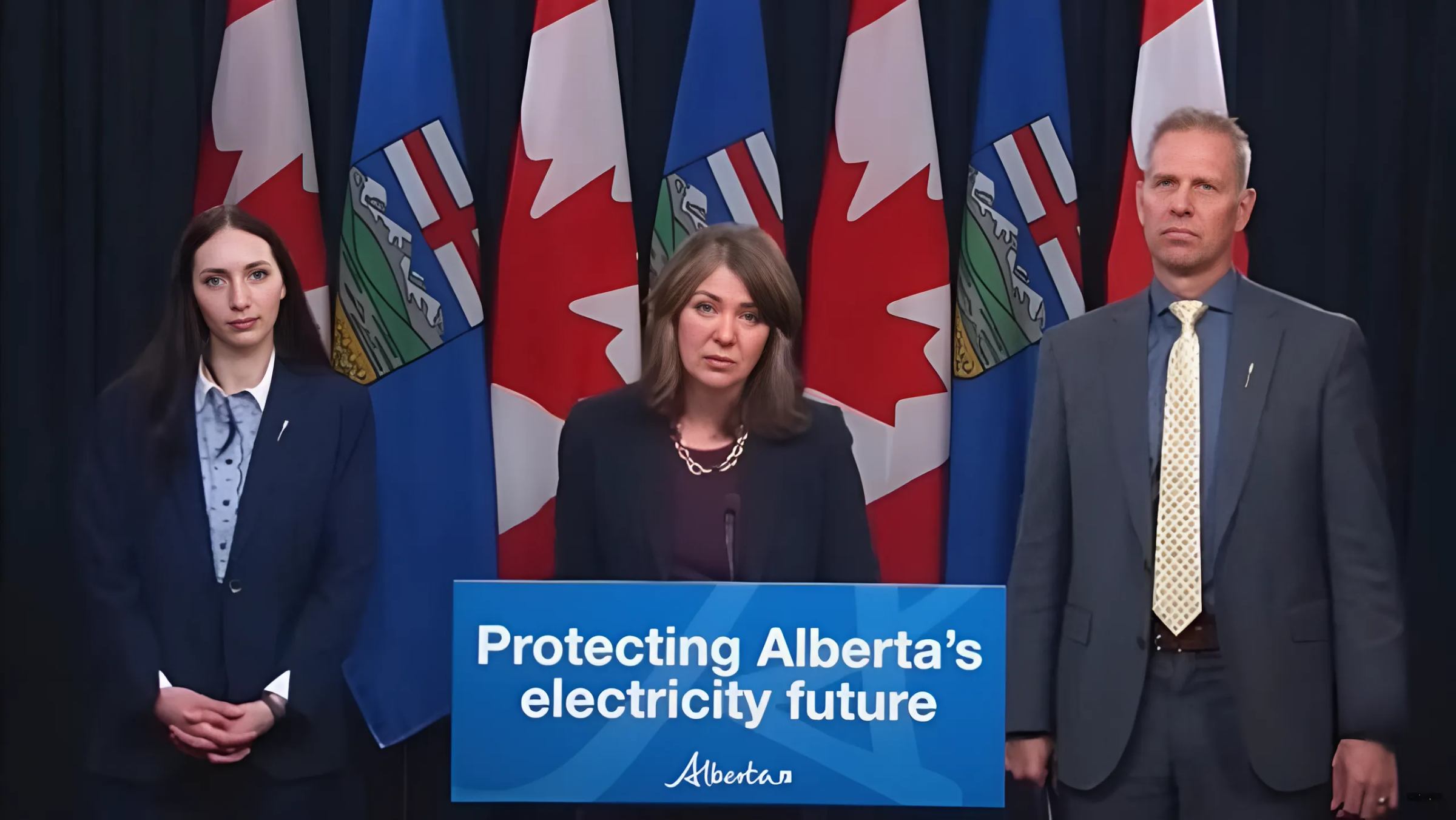Alberta Premier Danielle Smith, along with Utilities Minister Nathan Neudorf and Parliamentary Secretary Chantelle de Jonge, held a news conference in Edmonton today to discuss the government’s new legislation aimed at protecting residents from sudden spikes in electricity prices.
Premier Smith expressed her concerns about the rising cost of living in Canada. She stressed that while Canadians have become accustomed to a high cost of living, it is not something the government should accept. Smith emphasized her government’s determination to keep life affordable for Albertans, particularly in the realm of electricity costs.
Last week, the government announced changes to Alberta’s default power rate, renaming it the “rate of Last Resort.” This new rate will be set every two years for each provider, aiming to reduce price spikes and provide consumers with more certainty about their electricity costs. Smith noted that these changes are estimated to result in approximately $792 in savings per year for a family.
Today’s announcement focuses on introducing legislation to standardize the way municipalities charge local access fees in the province. Local access fees are charges that municipalities impose on power companies for setting up infrastructure within their boundaries. These fees are then passed on to consumers as part of their monthly power bills.
Smith highlighted the inconsistency in how local access fees are currently calculated across Alberta, leading to unpredictable power costs for consumers. For instance, Calgarians have been paying significantly higher local access fees compared to their counterparts in Edmonton due to the variable rate tied to the regulated rate option. In 2023, Calgarians paid an average of $240 in local access fees compared to Edmontonians’ average of $75. This disparity led to the City of Calgary collecting $303 million in revenue from local access fees, resulting in a surplus of $186 million
The proposed legislation, titled the “Utilities Affordability Statutes Amendment Act,” aims to end the use of variable rates in calculating local access fees. If passed, it will ensure that these fees are calculated in a predictable and standardized manner across all municipalities in Alberta. This move is expected to provide much-needed relief to consumers, particularly those in Calgary who have been disproportionately affected by high local access fees.
Minister Nathan Neudorf elaborated on the details of the proposed legislation, emphasizing that it would help make utility costs more affordable and predictable across the province. He criticized municipalities, particularly the City of Calgary, for collecting surplus revenue from local access fees and pledged stronger regulatory oversight to protect Alberta ratepayers’ interests.
The legislation also includes provisions to grant the Alberta Utilities Commission stronger regulatory oversight on how municipal fees are calculated and applied. This oversight aims to prevent municipalities from taking advantage of Alberta ratepayers in the future.
Premier Smith reiterated her government’s commitment to ensuring that Alberta’s electricity system remains affordable, reliable, and sustainable for generations to come. She emphasized the importance of these measures in protecting Albertans from spikes in electricity prices and ensuring fairness in local access fees.
The government also addressed concerns about housing affordability, with Premier stating a commitment to both affordable and attainable housing solutions. Responding to questions about the rising trend of young Canadians abandoning hopes of homeownership, the Premier expressed disagreement with the sentiment, emphasizing the importance of attainable home ownership for building wealth.
“Attainable home ownership is the first step in building wealth for many Albertans,” said the Premier.
To address this issue, the government announced an $840 million investment over the next three years to build 25,000 new housing units. Additionally, efforts are underway to streamline construction processes by removing regulatory hurdles.
On other fronts, the Premier expressed disappointment over a lack of actionable information provided by the Canadian Security Intelligence Service (CSIS) regarding foreign election interference. Responding to questions about the government’s stance on higher oil prices, the Premier stated that it’s too early to determine the full impact on the provincial budget. However, higher oil prices could potentially provide additional revenue, which the government hopes will bolster the economy.
The Alberta government’s recent announcements signal a proactive approach to addressing utility rates and housing affordability issues. While challenges remain, particularly in energy and election security, the government appears committed to finding solutions that benefit Albertans.

